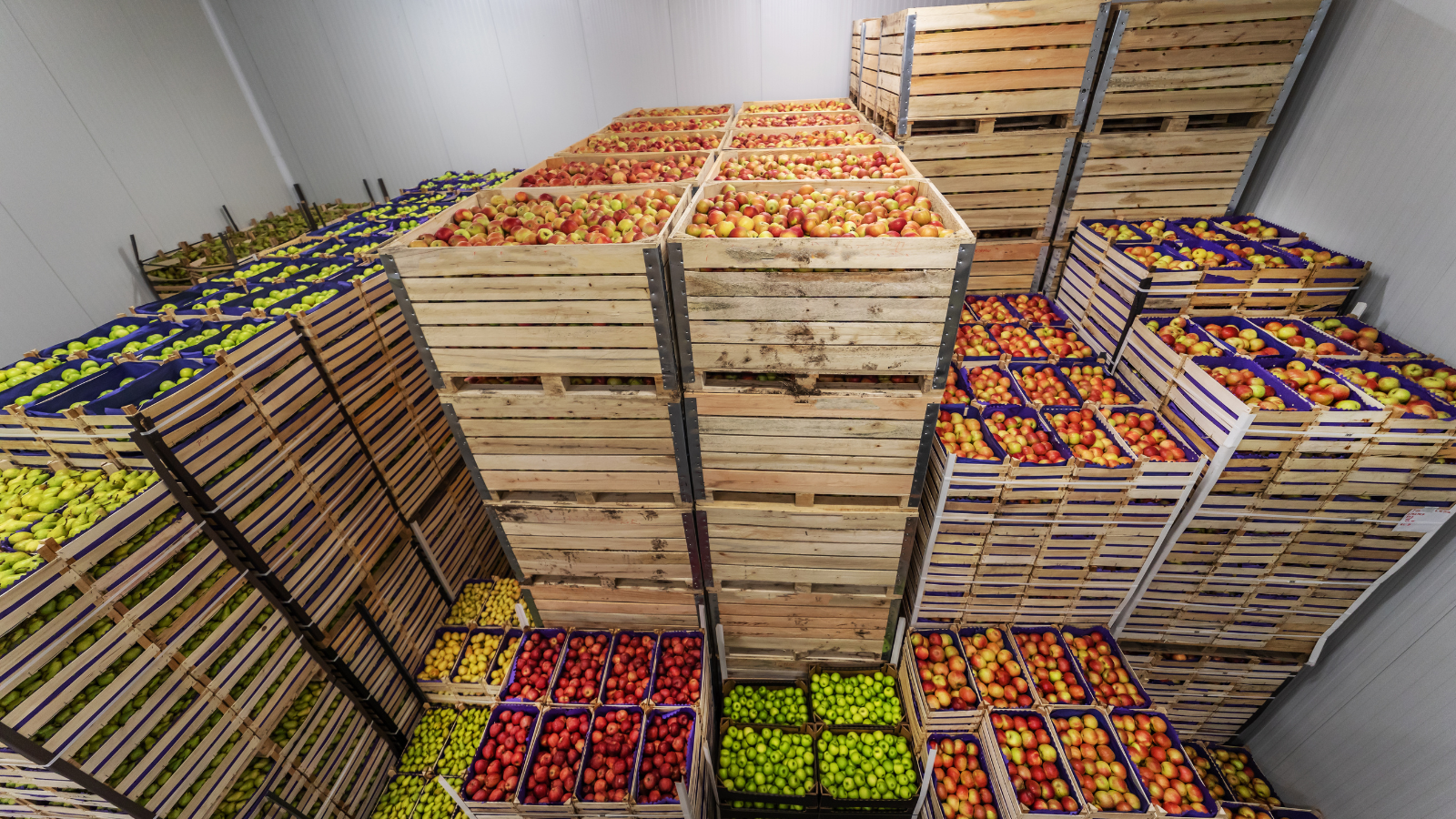The cold supply chain is responsible for transferring perishable products safely to the customer
The cold supply chain is responsible for transferring perishable products, such as fresh produce, dairy products, meat, and pharmaceuticals, safely from the producer to the customer. These products require specific temperature conditions to maintain their quality and prevent spoilage, and the cold supply chain is designed to ensure that these conditions are met throughout the entire supply chain process.
In the cold supply chain, temperature-controlled storage and transportation are critical to preserving the quality of perishable products. This requires the use of specialized equipment and infrastructure, such as refrigerated trucks, cold storage warehouses, and temperature-controlled packaging. The cold supply chain also requires strict monitoring and control of temperatures to ensure that the products are kept within the desired temperature range.
The safe transfer of perishable products is not only important for preserving the quality of the products, but it also has significant health and safety implications. For example, if food products are not stored at the proper temperature, they can become contaminated and pose a risk to human health. Similarly, if pharmaceuticals are not stored at the correct temperature, their effectiveness may be compromised, which can have serious consequences for patients.
Lundberg Family Farms has recalled about 4,600 cases of their “Sustainable Wild Blend Gourmet Rice” due to possible contamination by a “foreign object of rodent origin,” according to the FDA.
Hudson Harvest Wholesale has issued a voluntary recall for its Tomato Basil Sauce due to under-processing concerns, affecting batches distributed in New York, Massachusetts, and Connecticut in May and June 2024.
Planning a Memorial Day barbecue? Get ready to spend more than last year.
Chick-fil-A's recent announcement about a shift in their chicken policy might surprise some fans.
A recent viral social media post sparked a lively discussion about the prices at Five Guys, a popular burger chain in America.
U.S. food safety officials are warning consumers against consuming certain cantaloupe products due to an ongoing salmonella outbreak.
The United Nations' Food & Agriculture Organization (FAO) is set to release a global food systems' roadmap during the COP28 climate summit in Dubai, which will recommend Western countries, including the United States, to reduce their meat consumption as part of efforts to cut greenhouse gas emissions.
McDonald's has revealed that it is gaining middle- and higher-income customers who are trading down to its menu while simultaneously losing lower-income diners due to high inflation.
Food insecurity in the United States surged in 2022, reaching levels not seen since the aftermath of the financial crisis, according to government data from the U.S. Department of Agriculture.
Some global food companies, like McDonald's and PepsiCo, are struggling to reduce emissions across their value chains, despite ambitious sustainability goals.
Chick-fil-A Supply, the distribution arm of Chick-fil-A Inc., is set to establish a new 120,000-square-foot distribution center in Kannapolis, North Carolina.
The cold chain, essential for preserving and transporting products like ice cream, is a major contributor to climate change due to its energy-intensive operations.
Despite significant changes in consumer lifestyles during the pandemic, the trend of increased beverage consumption between Memorial Day and Labor Day has persisted.
An investigation by the International Union for Conservation of Nature (IUCN) Netherlands and AidEnvironment analyzed the palm oil supply chain in Colombia.
Rocky Mountain Chocolate Factory is ahead of its cost-savings schedule, successfully reducing expenses through improved inventory management and demand planning.
Russia's decision to withdraw from a grain export deal with Ukraine has escalated concerns about global food supplies and prices.
Wheat prices experienced a significant increase following Russia's actions targeting Ukraine's grain export infrastructure.
The U.S. food and agriculture sector faces ongoing challenges from the pandemic, rising costs, and labor shortages.
The surging demand for frozen food in the United States is putting pressure on critical cold storage supply chains.
Uber Eats, DoorDash, Grubhub, and Relay Delivery have filed lawsuits against New York City to block the implementation of new minimum pay rules for food delivery workers.
In recent years, the integration of artificial intelligence (AI) has revolutionized various industries, and now it is making its mark on the food and beverage manufacturing sector.
Consumer demand for sustainable products is driving the need for environmental responsibility in the consumer packaged goods (CPG) and food industry.
Walmart and Sam's Club have announced an enhanced seafood policy aimed at improving transparency and data collection in the tuna supply chain.
The food industry has experienced significant disruptions in recent years, including Brexit, COVID-19, conflicts, weather events, animal diseases, and inflation, leading to a global increase in food prices.
The consumer-packaged goods (CPG) industry has faced numerous challenges in recent years, including fluctuating supply and demand, shifting consumer preferences, ingredient shortages, and disruptions in the supply chain.
The impact of climate change on global food and beverage supply chains, including popular snacks like Doritos, was discussed at the Gartner Supply Chain Symposium/XPO.
Robotic technology is revolutionizing various aspects of the grocery sector, including inventory management, order fulfillment, and customer service.
A new Internet of Things (IoT) technology called Sensing-as-a-Service, which combines continuous asset monitoring with prescriptive analytics and real-time guidance, has the potential to prevent food waste in the retail industry.
A recent study has revealed that 56% of customer delays in shipments come from cross-border transportation.































Skylark Meats has issued a recall for its Rock River Cattle Co. Smokey Hibachi Skirt Steaks due to undeclared allergens—specifically soy, wheat, and sesame.